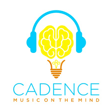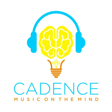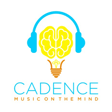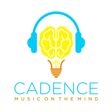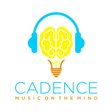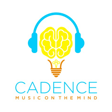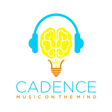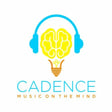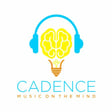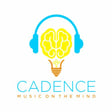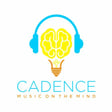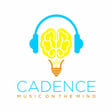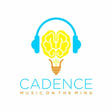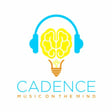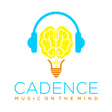Become a Creator today!Start creating today - Share your story with the world!
Start for free
00:00:00
00:00:01

S02 Episode 07: Putting Music in the Hands of Sick Kids
Watching someone suffer through a serious illness is heartbreaking—especially if it’s a child, and even more if it affects their ability to communicate. Can music empower such people by giving them a way to express themselves during moments when they may not be otherwise capable? MyMusicRx, a unique program that puts control into the hands of the kids, is attempting to do just that.
Transcript
Isa's Musical Journey and Health Challenges
00:00:02
Speaker
I like how they played the instruments and I could sing along to what song they were playing. Just getting to sing again and talk was really cool and when I could sing with hearing the instruments, I thought it was really fun to know how to do those things again.
00:00:31
Speaker
That was Isa, a girl who at the age of nine was diagnosed with a rare autoimmune disorder that left her in the hospital for months, sometimes in a medically induced coma. What helped a lot, both her and her parents?
00:00:45
Speaker
music.
Introduction to Cadence Podcast
00:00:46
Speaker
Welcome back to Cadence, the podcast where we explore what music can tell us about the mind. I'm Andrei Viscontis. This season, we're telling the stories of people whose lives have been immeasurably improved by music, especially in moments of extreme suffering. And we're asking the question, can music be medicine?
00:01:17
Speaker
You've probably noticed that listening to music can reduce anxiety, and in fact there are studies that show that it does reduce anxiety in many types of patients, like people with coronary heart disease.
Music in Medical Settings
00:01:28
Speaker
It shortens the length of time it takes to do a colonoscopy, which is great for everyone involved. There's even a study showing that singing can boost the immune system function in cancer patients, helping them fight off the disease.
00:01:41
Speaker
And it's not just patients who benefit. In the operating room, surgeons often have music played, and they report that it makes them feel, well, more relaxed, which has got to be a good thing, right? Perhaps one of the most studied uses of music in healthcare is to reduce pain and anxiety before and after invasive medical procedures. And the data are mixed, but the overall conclusion is that if you use your own curated playlist, you might not even need as many sedatives as someone who doesn't.
00:02:08
Speaker
But when facing some of life's most difficult moments, not everyone wants to listen to cheery music or a flute sonata.
Personalized Music Therapy with Regina Ellis
00:02:15
Speaker
In fact, some people just want total silence. That's why Regina Ellis created My Music Rx, a unique program that lets the patient lead the way.
00:02:24
Speaker
I founded Children's Cancer Association in 1995 after my five-year-old daughter Alexandra died of cancer. And Alex only lived five short years, but she really left an indelible legacy. And we set out to change the conversation and fill a gap for kids.
00:02:45
Speaker
facing cancer in the United States. We started piloting programs and really pioneering what music would look like. A kid prescribed music medicine in hospital.
00:03:01
Speaker
For example, 23 years ago, music that was offered in a hospital setting was very classic music therapy. Doctor prescribed music therapists at the bedside and we saw
00:03:19
Speaker
the possibility and potential for kid prescribed music, for acoustic volunteer musicians, for kids learning in a way that was powerful and transformative for them.
00:03:34
Speaker
Now we see many more children's programs being kid prescribed, meaning somebody goes room to room and says, what kind of music would you like to play today instead of, hey, Susie or Johnny, this is what Doc wants you to do with music. We want to mobilize your arm post a surgical procedure or whatnot, and this is what we're going to prescribe to you.
00:04:01
Speaker
And we're really proud to have been on the forefront of that transition with music and our ability to position music as medicine in an environment that is hard to be a kid in.
Isa's Story: Struggles and Recovery
00:04:16
Speaker
This episode, we're telling the story of Isa, whose name means rainbow in Chamorro, which is the indigenous language of Guam. This past year, Isa was stricken with an autoimmune disease that left her barely able to move or speak.
00:04:30
Speaker
For Issa's parents, Ashley and Tim, hearing their daughter engage with music again was a turning point and it was a huge gift. Here's Ashley, Issa's mom, telling us about what had happened.
00:04:47
Speaker
So it was a couple summers back in August that she first started to exhibit some symptoms of something not being quite right. It was just some muscle soreness. So we thought maybe she jumped too hard at the trampoline park or growing pains. And then she started to have a fever that wouldn't go away. She had it for a few weeks and we kept going into the doctor. Thought we were dealing with something like a virus of strep, but she continued to get weaker and weaker to the point that we were carrying her everywhere.
00:05:15
Speaker
She was nine years old at the time and just knew that we weren't turning the corner like we thought we were going to, so we finally found ourselves seeing a rheumatologist up in Portland and she was diagnosed with a very rare autoimmune disease called juvenile dermatomyositis.
00:05:34
Speaker
JDM for short. Once we got on the treatment regimen, pretty aggressive treatment regimen, where again, we thought we'd start to turn a corner, she got progressively weaker the week after she was diagnosed. And then from there, her condition just continued to deteriorate. And that's when she was really at probably the most acute phase of her illness. And she put on just a lot of water, which is when she at that point, she was unable to move.
00:06:04
Speaker
And from that point on, that's when we kind of lost that communication piece. And for the first week that we were there, she was able to communicate by writing on a whiteboard to us. But once she went through that state of edema and all of the swelling, she lost the ability to move her limbs.
Communication and Mental Health
00:06:31
Speaker
We are social creatures. In fact, one of the things that distinguishes humans from other primates is the fact that we live in relatively large social groups. And around the time when our skull size started to expand, which we have to assume probably means that our brains were expanding at the same time, came about when we started living in these larger groups. So one way of thinking about the selection pressures that left us with the brains that we now have
00:06:57
Speaker
is that natural selection was choosing people who could interact with each other and live in communities. That means that when we are unable to communicate, when we are unable to interact with those around us, it can be devastating. In fact, there's research that shows that when a person is in isolation, not only does their health suffer, but in fact, they might even get close to losing their minds. People begin to hallucinate and show other evidence of psychosis.
00:07:24
Speaker
Now, of course, that's an extreme situation, and in Isa's case, she was never isolated intentionally, but she was unable to communicate for a long period of time because of the disease and because of the interventions that the doctors had to do in order to save her life. Imagine what it must be like not to be able to communicate with your child and wonder, are they going to come out of this? Are they going to be the same person? Is their mind still going to be there?
00:07:51
Speaker
Those are the kinds of questions that Ashley and Tim had to face while they watched their daughter in a medically induced coma or with a trach put in that left her unable to speak. One of the ways in which music can be most powerful is by giving individuals the ability to make sound that is meaningful, that is communicative, when they are unable to use their voices.
00:08:13
Speaker
or when language eludes them. If you can't speak or communicate in other ways, the question is, are you still there? And through music, Ashley and Tim noticed that Isa was in fact still there. She had to have a hemicollectomy because she continued to have issues with
00:08:32
Speaker
her intestines and it was really after that surgery that she a light switch went on and the very next day we started to see her change and to finally start to recover. That was at the end of October and I still I have a video of her from a keyboard that Music RX left with us one day and it was probably November 4th or so that she started playing on the keyboard.
00:09:07
Speaker
And for us, that was not only special because she was able to create again and to interact with us in a different way, but also just a promise that, you know, her memory was intact and that she, her mind, you know, with all that her body had gone through, that her mind was still that same Isa, you know?
00:09:27
Speaker
She's recovered a lot of her kidney function and, you know, everything else has really returned closer to normal back to school and her normal routines and back with her piano lessons, which she really enjoys and has been, you know, music has continued to be part of that healing process for her. So she just did a talent show this year at school, played piano, a couple of piano pieces. And it's been just, you know, really nice to get back to a normal routine.
Does Music Therapy Work for Everyone?
00:09:55
Speaker
So music helped Isa get through her time at the hospital, and it also helped her family. But her family was already musical to begin with. What about families where music isn't a part of their daily lives? Can this kind of music therapy also be successful for them? And how would we measure that? Music is so subjective. So how do we know that any given prescription is going to be appropriate for every single patient?
00:10:20
Speaker
I can understand how it would seem weird to start to play music in a time when there's a lot of serious decision-making to be made and people are really in pain. And in fact, Isa herself, a person for whom music is a part of her family life, wasn't really quite into it to begin with.
00:10:38
Speaker
Well I remember at first I didn't really want to have the music RX people in my room but like over time I kind of I was able to start playing the instruments that they brought in and I kind of warmed up to them more. I remember they would bring in like a cart of like instruments and I would kind of play around with them and
00:11:05
Speaker
like one of them like he would play the guitar and I would sing the song that he was playing and he would often leave behind some instruments for us to play so that you could play even when he wasn't there yeah that must have been pretty fun yeah I think my favorite was probably like this drum called the happy drum which made this really like funny sound
00:11:34
Speaker
Tim, what was that like for you to see your daughter come out of what was a very serious illness? What role did the kind of music intervention play for you as a parent?
00:11:47
Speaker
It played a really big role for me. And so, you know, Issa was kind of alluding to enjoying, you know, music for a long time before this whole illness. And so, you know, we were actually just going through some old videos. And so there are some old video clips of Issa just kind of, you know, stream of consciousness kind of singing along.
00:12:20
Speaker
I come from a musical family. I play the guitar and the ukulele and so you know Isa and I would just kind of sing along.
00:12:38
Speaker
And so to kind of see her lose that ability there for a short time was of course very hard. We would just listen, but I still brought the ukulele to the hospital and we would kind of play on our own and listen to music was kind of a daily thing at the hospital. But, you know, Chris from
00:12:59
Speaker
the program would come and he was, a lot to his credit, he was very persistent and came back frequently until East was comfortable and once she was, you know, playing with that happy drum or a lot of the other instruments was really fun just to kind of see that, you know, the brightness in her eyes kind of come back during those moments.
Music as a Therapeutic Tool
00:13:21
Speaker
So it was helpful for her, I think, because I think they also helped her. They played while she was doing some physical therapy or during some painful procedures were also kind of ways to distract her and help her through that or, or also it'd be even at the end of the day.
00:13:37
Speaker
Yeah, sometimes when we were actually down in the gym doing the therapy, they would come down and play music while we were down there. It made the therapy feel like a little more fun than it actually was.
00:13:55
Speaker
So when we have to do something that we don't really want to do, maybe it's boring like, you know, studying a subject that's really not that interesting, or maybe it's going to the gym and having to go through a routine workout that we just don't really enjoy yet, music can make a huge difference. Imagine what a disaster it would be at a spin class like SoulCycle if there was no sound system.
00:14:18
Speaker
And the vast majority of us do use music when we work out or when we exercise to make the time pass a little bit more quickly. Well, I listen to podcasts, but you get the point. In fact, you might have heard of the Mozart effect. This is the idea that listening to Mozart can make you smarter.
00:14:33
Speaker
Well, it's not quite as simple as we discovered in Season 1, but it certainly does raise your level of arousal, and so it lets you pay attention a little bit longer. Listening to Mozart or listening to any upbeat music, in fact, makes you better able to perform on tests of cognitive function for a few minutes afterwards.
00:14:53
Speaker
In the same way, having music around when Isa was going through therapy, which physical therapy can be often very difficult to deal with. You're asked to do things that might be painful or uncomfortable as you're learning to use your body as you once were able to. Listening to music can be a welcome distraction, can give you the motivation and the energy that you need in order to get through these often painful exercises.
00:15:18
Speaker
And it just brightens the mood. Exercise just doesn't feel quite as hard. In fact, there are data to show that that's the case when you're listening to music. Now, it might not necessarily make you run faster, but it will make the run feel shorter. And that's probably exactly what Issa was experiencing when music was brought into her therapeutic setting. I think it's crucial for these kids who are really sick, especially because they have so little in their control. There's so much being done to them.
00:15:46
Speaker
or that they just can't. Lisa Neesa's case, you know, she didn't have a say in much. And so for them to respect what she needed at each moment, whether it was just like, no, I'm not ready to have you in my room, or I'm in this mood today of just kind of singing this mellow song versus
00:16:06
Speaker
banging out a more active song on drums I think is really important for them to feel like they have some control over at least some part of their day and I think that's why music coming back into her life in the hospital was so important because she had the trach and couldn't speak and because she had very limited mobility to be able to create sound with small motions
00:16:31
Speaker
Or, you know, when she eventually was able to find her voice again, I think those were really kind of monumental moments for her because she was able to interact more with the world around her than she had been able to before. So just a small shaker, you know, she was making sound and maybe that was all the motion she had was a little, a slight wrist movement, but she was making sound again and that was, that was important.
00:16:59
Speaker
One of the biggest challenges that people who are interested in music and healthcare settings have to face is how do you measure the impact? We live in a time when medicine is evidence-based and for good reason, and even insurance companies will base their support of a particular intervention on how quantifiable its effects might be. But how do you do that for something like music?
00:17:24
Speaker
where there's a kind of je ne sais quoi to the experience that is really kind of hard to put into numbers. I mean, we can measure things like how long the person takes to leave the hospital, how many sedatives are prescribed, what their anxiety or pain scores are at any given time, how their caregivers rate their quality of life and so on.
Measuring Music's Impact
00:17:45
Speaker
But how do you measure joy? How do you measure that intuitive sense that the atmosphere in the room is improved?
00:17:53
Speaker
that the patient's mood has been lifted and that that somehow contributes to the healing process.
00:17:59
Speaker
We are getting better at quantifying these kinds of experiences, but we're still not quite there yet. And that's where stories like Issa's can be really powerful, not only in showing us that music can have a observable benefit, but also helping us devise ways to measure it. One criticism that you often hear about music therapy is that the data from studies are mixed. So some studies show that music interventions actually have no effect.
00:18:27
Speaker
And often, these studies are of music that was not individually prescribed, but rather that everybody listened to the same music. We know how important it is to be able to pick your own playlists, and that is no less important in the healthcare setting. So Regina's innovation of making the music kid prescribed, of taking away that sense that everybody needs to have the same kind of protocol,
00:18:53
Speaker
might be more effective in the long run, but it also makes it difficult to measure how effective those interventions are in terms of collecting scientific data.
00:19:03
Speaker
But I wanted to know what it was about Regina's personal experience or her observations of the experiences of others that led her to be really adamant that one of the key features of My Music Rx was in fact that it was led by the kids. What I love is the power of research but also our own intuition and what we see every day in our own lives and for that it was very true.
00:19:27
Speaker
What we saw was, as a family, music had always been important in our life. And so, as we sat around the hospital floor, no longer the campfire at the beach, but as Alex was tethered to chemotherapy agents and a pretty aggressive regime to battle a aggressive cancer, we saw friends bringing in instruments and the power of music
00:19:57
Speaker
coming out of a little girl's room and other families stepping in and docs and nurses and folks in hospital coming in and we got to be human beings again. And the power of music to take us from one state of battling cancer, of isolation, of anxiety, of
00:20:20
Speaker
pain or discomfort and nausea to a joyful state. A shift to a greater sense of well-being and community was what our family experienced. And we tried to translate that in developing a program that was kid prescribed and allowed music to be respectfully
00:20:46
Speaker
integrated within a very formal environment, right?
00:20:53
Speaker
As a trained scientist, especially one trained in the psychology of human behavior, I'm often uncomfortable when we can't actually show an observable measure of improvement and instead have to rely solely on our intuition to decide whether something is effective, because after all, we are full of biases and we are full of opinions that affect the way that we see and perceive the world.
00:21:18
Speaker
And there's a reason why medicine is evidence-based today and why that can be much more helpful in the long term than an approach that is based on pure anecdotes.
00:21:28
Speaker
But I also don't want to completely discount the artistic side of music and the fact that, well, it's very difficult to quantify exactly what effect it might have and why we love it so much. And maybe by trying to reduce it into its component parts and its effects, we lose something substantial about what music really is all about and what it can tell us about ourselves.
00:21:53
Speaker
I think that we all experience music kind of as the soundtrack of our lives, right? And if we have children or friends or we're at a family event or a work event or a funeral or a birthday, usually there is music played, right? And
00:22:13
Speaker
that music evokes emotion. You know, we see people swaying, dancing, crying, remembering, and it speaks to our souls. And it links us together, right? You know that as a musician, what people experience sitting in an audience as they are connected to who they are, what they believe in, and their emotions and just that power.
00:22:47
Speaker
I think it was really important for us all along to just have music as part. It just kind of came naturally, but we constantly had music playing in her room, or for her to go to sleep too, and we'd sing in her ear as we were waiting for an MRI out in the hallway, and we'd be singing along to music for her while she was having a bedside procedure, and we were constantly
00:23:12
Speaker
Constantly singing or having music around her just because it can be either a good distraction or just for me I just I felt relief to you know soothing for me to feel like I was at least doing something for her to try to create calm for her during what could be scary moments.
00:23:32
Speaker
Yeah, I imagine that, you know, in those moments in the pick you when she couldn't speak, maybe even if it was more one sided to begin with, playing the ukulele, playing music for her gave you the sense that you were communicating. Yeah, I would, I would play for her even when she was asleep or, you know, that sort of thing, just because, you know, at that point when she was just medically induced into, you know, sleep at that point, then
00:24:02
Speaker
You just never know what they're, we always just continue to talk and read to her and sing and play music. So it was just kind of, maybe at that point it was more for our own, you know, healing and coping. Do you feel like you're going to continue playing music on the piano or the ukulele or what do you think is, what do you find fun right now? What do you do for fun? I actually do do piano like,
00:24:32
Speaker
a lot and stuff because like i've been doing things that i wasn't able like to do or that i didn't want to do like the talent show and stuff and i'm doing a lot of music related things and
00:24:52
Speaker
that type of stuff. Ysa was, as a toddler and young girl, she was pretty shy, slow to warm up to people, a little hard to bring her out of her shell.
00:25:07
Speaker
You know, we'd always say at the soccer on the soccer field She dribbled a ball the way down the field but wouldn't want to be the one did to take the shot and make the goal So she'd she'd pass it off last minute so that someone else could could get the attention for she didn't didn't really wasn't an attention seeker for sure and
00:25:24
Speaker
Somehow, through this experience, she's gained confidence, acknowledges how brave she is and knows that about herself. This experience will define her and will continue to, but in the most positive of ways, I think she's come out just much more confident and sure of herself and more willing to take risks and put herself out there a little bit more.
Isa's Growth and Public Performances
00:25:49
Speaker
Music is a way that she's been doing that, so where the talent show at school would have been something she would never have considered before. This year she did it with very few jitters and she's also wanting to participate in a piano, kind of a piano festival. It's not really a competition, but just a way to showcase what she's learned this year with her teacher. So she's actually seeking out more experiences like that to kind of challenge herself in new ways.
00:26:16
Speaker
Yeah, that's what I was going to ask is how this experience has changed her. I mean, Isa, do you have any sense of how you've changed or is it hard for you to tell? It's kind of hard for me to tell, but the only thing I can tell really is that I have become less shy because I wouldn't have really wanted to do some things that I've done after the hospital's day.
00:26:43
Speaker
I bet. When we were talking with Isa just over lunch, actually, before coming here, you know, we were just given Tim's background with a musical family and, you know, having just always we oftentimes just have music playing in our house and we do a lot of that at home anyways. And so it was natural for us to bring that into the hospital.
00:27:05
Speaker
for her and as a way for us to continue to communicate with her and bring a sort of peace to the room. A lot of kids might not have that or you might not think of bringing that into the hospital room like it's supposed to be a quiet place.
00:27:20
Speaker
don't disturb the patient or whatever, but we saw the value of that on our own initially. And so it was great to have the program to just continue to encourage that and more so to encourage the voice to come from ESA and for her to be more participatory in it and not it being coming from us. But for kids that don't necessarily have that or families aren't as involved,
00:27:47
Speaker
I think that piece is crucial for them because I asked Issa what it would be like, you know, if there wasn't the music in her room and we just kind of sat quietly and there wasn't, you know, there wasn't much joy to think, you know, it just was so quiet and I just can't imagine that that would be a very positive healing environment. And so to have the program bringing that in
00:28:16
Speaker
especially for kids that don't necessarily have that or don't have families playing music for them all the time. I think it can be very healing and that the idea of giving them a voice in it and having them be able to create sound and movement and
00:28:36
Speaker
participate like that in something different that's not the same old, same old and kind of bring change to the day or something to look forward to at the end of the day is very important in the healing process. And for us, it's certainly brought us peace and in moments where, you know, we were kind of not feeling very grounded. And so it was important for us and important for her.
Scientific Exploration of Music's Effects
00:29:15
Speaker
So our ability to see how music affects us, especially in healthcare settings, is experiencing a time in which there's a lot of interest and a lot of scientists are trying to put their heads together to figure out how we can actually measure the effects. In fact, there seems to be a lot of attention to this subject from the National Institutes of Health with their upcoming initiative on understanding how music affects the brain.
00:29:38
Speaker
And also, if you want to learn more, there are multiple conferences now, finally, in which music therapists and neuroscientists are getting together to try to answer some of these questions. One is coming up very soon at Northwestern University. So on Friday, May 11, 2018, there's a conference called Music Therapy at the Intersection of Medicine, Society, and Our Personal Lives at the Allen Center in the McCormick Auditorium at Northwestern.
00:30:05
Speaker
you can find out more at musictherapy.soc.northwestern.edu. Topics include an introduction to music therapy and how music therapy can affect people with autism or movement disorders, the economics of hospital-based arts, and include speakers like Nina Krause from Northwestern, Nancy Gustafson, Conchetta Tamino, who we'll hear from in a future episode, and many others.
00:30:33
Speaker
Check it out. Once again, the website is musictherapy.soc.northwestern.edu. I don't know what conclusion we're finally going to come to in terms of just how effective or even quantifiable the effects of music are in healthcare settings. But I do know that a lot of really smart people are working on the problem. And I also know that stories like ESA's are helping us get a sense of just how important music might be to people who are in the hospital.
00:31:03
Speaker
If you want to learn more about the Children's Cancer Association and the My Music RX program, you can go to JoyRX.org. Thank you for listening to this episode of Cadence. You can find us online at the ensembleproject.com slash cadence at Facebook slash cadence podcast and on Twitter at Cadence podcast. You can also get in touch with us at cadencemind at gmail.com.
00:31:25
Speaker
And you can support us at Patreon.com slash Cadence Podcast. Cadence is produced by Adam Isaac and me, Indre Viscontis. I also create and write the show. Additional production assistance comes from Scott Lowry. The music in this episode was provided for us by Isa and by acclaimed New Zealand composer, Rian Sheehan. Check him out at RianSheehan.com. You can find me on Twitter at IndreVis.
00:31:49
Speaker
This season of Cadence is generously supported by the Germanicos Foundation. Join us in a few weeks as we continue to ask the question, can music be medicine? And we explore what music can tell us about the mind.
